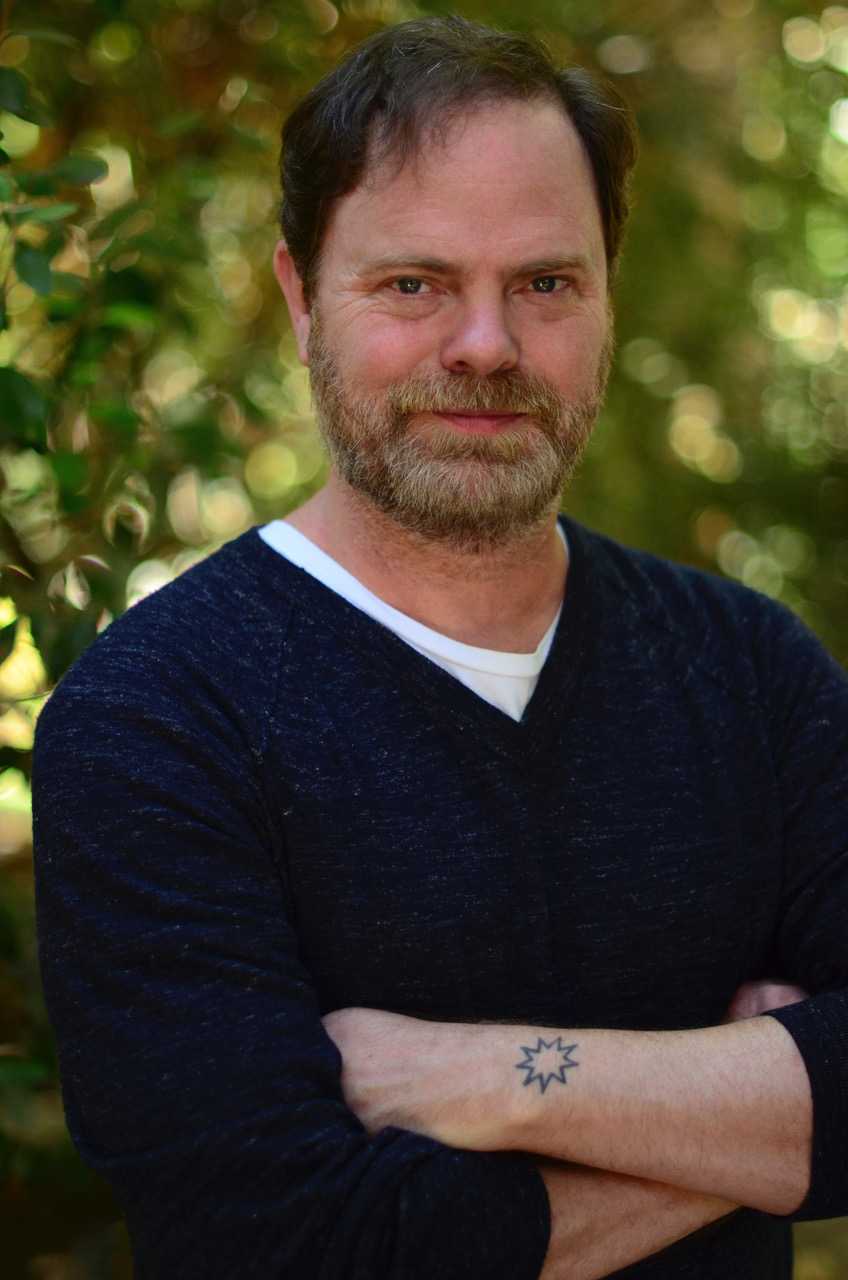In a world increasingly fascinated by spirituality, the realm of Hollywood serves as a curious juxtaposition. How often do the glitz and glam correlate with profound introspection and metaphysical inquiry? This playful inquiry opens a discourse about the intersection of Bahá’í teachings and contemporary spiritual expressions within the limelight of the entertainment industry. The evocative insights of Rainn Wilson—a renowned actor, writer, and fervent Bahá’í practitioner—illuminate this exploration, offering a unique lens through which to examine spirituality amid the allure of stardom.
First and foremost, it is essential to delineate the core tenets of Bahá’í teachings, which emphasize the oneness of humanity, the universality of religious truth, and the significance of personal spirituality. These principles, intertwined with the ethical fabric of society, seek to foster unity among diverse individuals while promoting a holistic approach to life. Within the context of Hollywood, this ethos presents expansive possibilities for both artists and audiences alike.
Wilson’s own journey embodies a microcosm of the broader interplay between artistry and spirituality. As an individual imbued with a desire to explore and engage with metaphysical concepts, Wilson offers insight into how Bahá’í principles manifest in the often tumultuous landscape of Hollywood. He articulates the notion that true fulfillment arises not from superficial accolades or public adulation, but rather from an insatiable quest for authenticity and connection to a higher purpose.
The interrogation of spirituality through an artistic lens requires an understanding of the dichotomies that often plague celebrity culture. On one hand, Hollywood is a repository of dreams, a place where one can achieve remarkable feats and bask in the light of public adoration. On the other hand, it can lead to an existential malaise characterized by isolation and disillusionment. This paradox poses a challenge: how can creative individuals maintain their intrinsic spiritual values while navigating the often tumultuous waters of fame? This predicament poses an intriguing question—can spiritual integrity flourish amidst the superficiality often associated with celebrity?
Wilson’s responses to such inquiries reveal a profound understanding of balance. He underscores the importance of cultivating an internal compass guided by deeper spiritual convictions rather than external validations. Embracing the transient nature of fame allows one to remain tethered to what is timeless and enduring. The Bahá’í perspective asserts that worldly pursuits should not eclipse one’s spiritual aspirations. Wilson narrates experiences that exemplify this balance, showcasing moments when he turned to the teachings of Bahá’u’lláh during periods of personal and professional upheaval.
Moreover, Wilson’s advocacy for mindfulness and self-awareness serves as a clarion call for creatives entrenched in a demanding industry. By sharing his own practices of reflection, meditation, and community engagement, he champions the notion that Hollywood can indeed be a fertile ground for spiritual awakening. This sentiment invites further exploration: in what ways might the entertainment industry benefit from a more profound embrace of spirituality?
One possible avenue is the integration of Bahá’í principles in the creation and reception of media content. Hollywood is uniquely positioned to disseminate narratives that uplift and educate while promoting dialogue around unity and understanding among disparate communities. Films and television shows that incorporate themes of interconnectedness and compassion could challenge prevailing societal narratives and engender empathy. Thus, the industry possesses the capacity to transcend mere entertainment and evolve into a medium for spiritual growth.
The challenge lies in the reception of such content. Audiences are often conditioned to seek entertainment that titillates or distracts rather than edifies. This poses a pivotal question: how can filmmakers and content creators spark an authentic interest in spiritually inclined narratives without alienating viewers accustomed to conventional storytelling? Striking this balance necessitates innovation, creativity, and sensitivity to the audience’s diverse preferences and backgrounds.
Furthermore, Wilson’s own platform as a public figure offers an intriguing case study in the advocacy of spirituality within Hollywood. By embracing his identity as a Bahá’í and vocalizing the tenets of his faith, he challenges the status quo and encourages others within the industry to explore their spiritual identities. This visibility can be potent—sparking conversations that bridge the divide between personal belief systems and public personas.
In light of this dynamic, it becomes evident that the interplay of spirituality and Hollywood is not merely an abstract discussion but an actionable dialogue. Those within and outside the industry must recognize the profound implications of fostering a spiritually enriched environment. By nurturing a culture that values authenticity, connection, and shared human experience, Hollywood can evolve into a beacon of light that not only entertains but also enlightens.
Ultimately, the journey exploring spirituality in Hollywood, as illuminated by Rainn Wilson’s insights, invites reflection and inquiry. As individuals navigate this intricate landscape, the challenge remains: how can one retain spiritual integrity amid the inevitable distractions and allure of fame? With deliberate intention, profound connection to spiritual truths, and a commitment to authenticity, the pursuit of genuine fulfillment becomes an attainable reality—one that harmonizes the essence of Bahá’í teachings with the vibrant tapestry of Hollywood.
